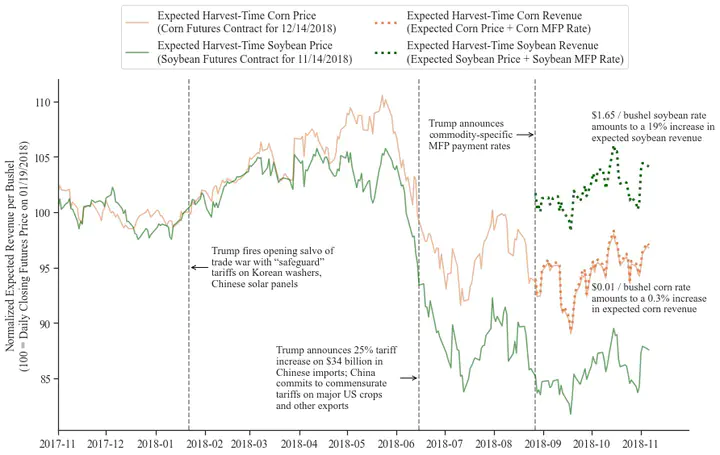Policy Impact and Voter Mobilization: Evidence from Farmers’ Trade War Experiences

Abstract
How does the extent of policy benefits—not simply their presence—affect political engagement? While fundamental to understanding the electoral implications of economic policymaking, addressing this question is challenging due to the difficulty of measuring individual voters’ policy outcomes. We examine a natural experiment embedded in President Trump’s Market Facilitation Program, which aided a core Republican constituency: farmers harmed by his 2018 trade war. Due to idiosyncrasies of program design, the MFP undercompensated some farmers for their trade war losses—and significantly overcompensated others—based solely on their 2018 crop portfolios. Analyzing over 165,000 affected voters, we show that improved compensation outcomes had negligible impacts on Republican farmers’ midterm turnout and campaign contributions, even though such variation in benefits significantly affected farmers’ propensity to view the intervention as helpful. This null result is important—our estimates suggest that even highly salient variation in policy outcomes may have limited mobilizing capacity.